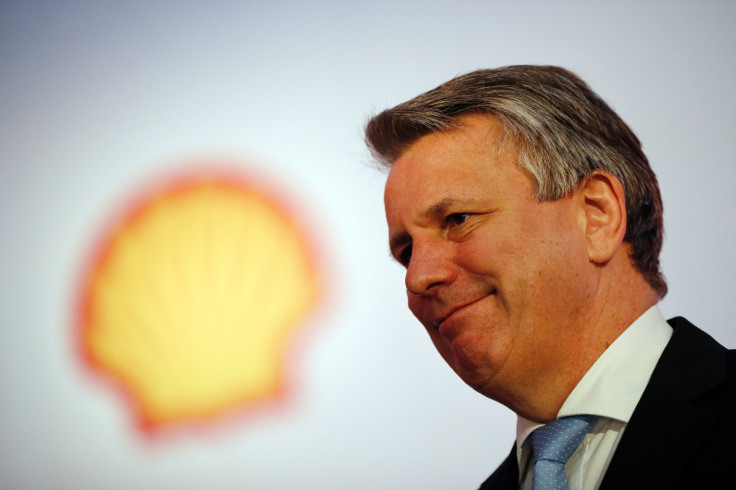Shell Pulls Out Of US LNG Project, Cuts Other Spending Amid Plunging Energy Prices

KEY POINTS
- Shell said it will reduce capital spending by $5 billion to less than $20 billion in 2020
- Shell suspended its $25 billion share buyback plan
- Shell pays out about $16 billion in dividends every year
Royal Dutch Shell (RDS-A) has withdrawn from a major U.S. liquefied natural gas, or LNG, plant project under development in Lake Charles, La., due to the crash in energy prices.
Brent crude, the international oil price benchmark, has dropped to its lowest level in 18 years, trading at about $26 a barrel as of Tuesday afternoon, while West Texas Intermediate crude is priced at only $20. Natural gas prices have fallen to the lowest level in 25 years.
"This decision is consistent with the initiatives we announced last week to preserve cash and reinforce the resilience of our business," said Maarten Wetselaar, head of Shell’s integrated gas and new energies division. “Whilst we continue to believe in the long-term viability and advantages of the [LNG] project, the time is not right for Shell to invest.”
Energy Transfer (ET) of Dallas, Tex., remains committed to the LNG project and will take over as its lead developer, Executive Vice President Tom Mason said. (Shell noted it will help Energy Transfer with the bidding process for a general contractor at the project).
The Lake Charles facility is one of a number LNG export projects across the globe that have been postponed because of the collapse in global energy prices.
“It’s telling that [Shell], a major [oil company] would walk away from a major outlet for long-term gas supply,” said Ira Joseph, head of global gas and power analytics at S&P Global Platts, adding that storage, port and pipeline work were already in place at the Lake Charles project.
Last week, Shell said it will reduce capital spending by $5 billion to less than $20 billion in 2020 and also suspended its $25 billion share buyback plan as it tries to cope with collapsing oil prices. The oil giant also plans on cutting its operating costs by between $3 billion and $4 billion this year.
However, Shell assured that it does not expect the coronavirus pandemic to seriously crimp overall demand for its oil products in the first quarter.
“Marketing margins in the first quarter are expected to remain strong, as the impact on demand from COVID-19 is not expected to be significant at the Shell group level,” the company said.
Shell noted that it experienced a “relatively minor” impact in the first two months of the year from coronavirus-related effects and projects sales volumes and margins for the whole first quarter will be relatively stable.
Shell estimated that oil product sales volumes ranged between 6 million to 7 million barrels a day for the quarter, versus 6.5 million barrels a day reported a year earlier.
First quarter upstream oil and gas production is projected to amount to 2.65 million to 2.72 million barrels of oil equivalent a day, with margins affected by the “weak environment.”
RBC Capital Markets said in a note that the impact of the coronavirus on oil demand only accelerated in March.
“We think Shell has the balance sheet capacity and ability to cut capex to survive in the current environment without a significant cut to dividends, but if this outlook was to last for more than nine to 12 months, we would expect a [dividend] cut,” RBC analyst Biraj Borkhataria.
Nicholas Hyett, an equity analyst at Hargreaves Lansdown, said if the price of oil stayed below $40 a barrel Shell’s dividend “could yet become a burden that’s too much to bear.”
“That’s the rub for Shell investors,” he said. “The [Shell] group’s taking emergency action to protect cash flow in the short term, but the influence of the oil price means its future is largely out of its hands. There’s no knowing exactly how long the toxic combination of increased global supply and falling demand will last.”
Shell pays out about $16 billion in dividends every year.
Moreover, the unprecedented turbulence of the first quarter will impact Shell’s bottom line.
Shell expects to record after-tax impairment charges of $400 million to $800 million for the quarter.
“The combination of steeply falling oil demand and rapidly increasing supply may be unique, but Shell has weathered market volatility many times in the past,” said Shell chief executive Ben van Beurden.
© Copyright IBTimes 2024. All rights reserved.



















